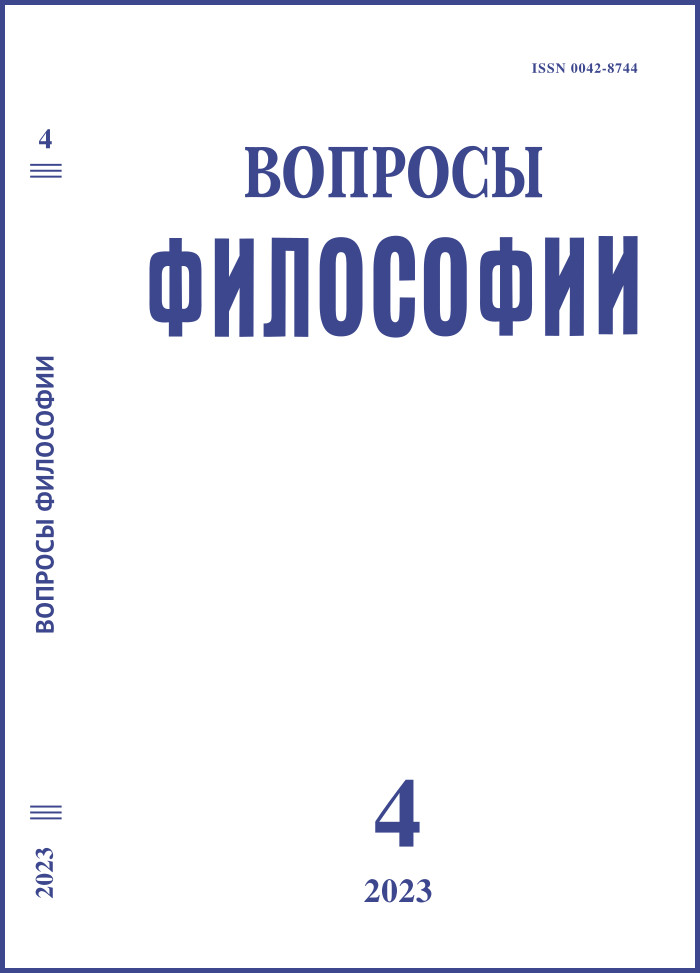Society as an Institutional Form of Social Reality
DOI:
https://doi.org/10.21146/0042-8744-2023-4-18-28Keywords:
Social philosophy, sociology, activity, society, social group, self-sufficiency, subject, needs, interests, goalsAbstract
The article examines the controversial issues associated with understanding the category of “society”, which is of key importance for reflective social philosophy and theoretical sociology. The author criticizes the extremely broad interpretation of society as a social reality – a substantively independent subsystem of the world around us, isolated from nature and different from it. Society is
understood by the author as an institutional form of the existence of social reality – a self-sufficient human collective capable of producing and reproducing all the necessary conditions for the individual and collective existence of people, including their formation as social beings. The author views society as a real social group consisting of interconnected people who carry out joint coordinated activities aimed at realizing common interests and goals. The point of view is criticized, which denies the ontological reality of society, considering it as an “imaginary community” of people, a product of their project consciousness. The author criticizes the approach according to which the interpretation of society as a real group is not applicable to a society divided into classes with multidirectional interests that cause permanent conflicts between their carriers. The author analyzes the phenomenon of self-sufficient existence, which distinguishes society from non-self-sufficient social groups, distinguishes between actual and potential forms of self-sufficiency, examines its real content associated with the production of subjective, material, informational and organizational elements of social life necessary for its maintenance. The article examines the polemics of representatives of “methodological individualism” and “methodological collectivism” associated with the interpretation of society as an integrative subject with its own needs, interests and goals that are absent from the people who form the society

